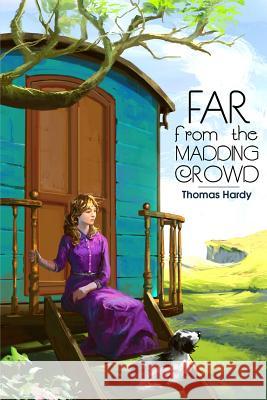Far from the Madding Crowd » książka
Far from the Madding Crowd
ISBN-13: 9781515162322 / Angielski / Miękka / 2015 / 298 str.
Far from the Madding Crowd
ISBN-13: 9781515162322 / Angielski / Miękka / 2015 / 298 str.
(netto: 43,71 VAT: 5%)
Najniższa cena z 30 dni: 45,77
ok. 16-18 dni roboczych
Dostawa w 2026 r.
Darmowa dostawa!
Far from the Madding Crowd
Thomas Hardy (1840 - 1928)
Far from the Madding Crowd (1874) is Thomas Hardy's fourth novel and offers in ample measure the details of English rural life that Hardy so relished. Hardy's growing taste for tragedy is also evident in the novel. It first appeared, anonymously, as a monthly magazine serial, where it gained a wide readership and critical acclaim. According to Virginia Woolf, "The subject was right; the method was right; the poet and the countryman, the sensual man, the sombre reflective man, the man of learning, all enlisted to produce a book which . . . must hold its place among the great English novels." The book is often regarded as an early piece of feminist literature, since it features an independent woman with the courage to defy convention by running a farm herself. Although Bathsheba's passionate nature leads her into serious errors of judgment, Hardy endows her with sufficient resilience, intelligence, and good luck to overcome her youthful folly.
Title
Hardy took the title from Thomas Gray's poem Elegy Written in a Country Churchyard (1751).
Far from the madding crowd's ignoble strife
Their sober wishes never learn'd to stray;
Along the cool sequester'd vale of life
They kept the noiseless tenor of their way.
"Madding" means "frenzied" here.
Lucasta Miller points out that the title is an ironic literary joke as Gray is idealising the noiselessness and sequestered calm whereas Hardy disrupts the idyll, and not just by introducing the sound and fury of an extreme plot .... he is out to subvert his readers' complacency.
Zawartość książki może nie spełniać oczekiwań – reklamacje nie obejmują treści, która mogła nie być redakcyjnie ani merytorycznie opracowana.











